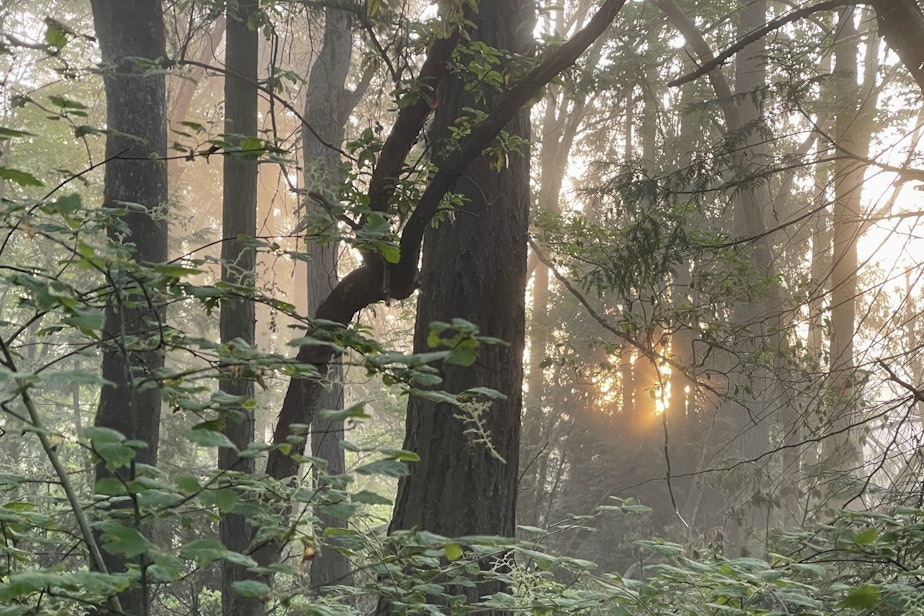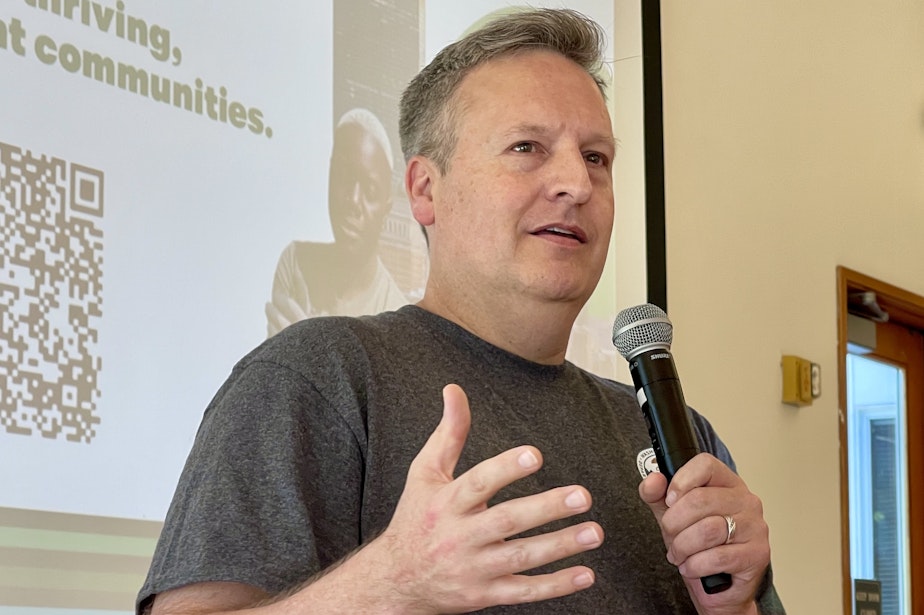'Tree equity' on the chopping block in Washington state

Ever since Renton, Washington, hit 109 degrees during the Northwest’s record-shattering heat wave in 2021, officials of the city just south of Seattle have been trying to make Renton more resilient.
“We offer cooling centers, and we offer facilities to the public to escape, but that's not a long-term solution,” said Gabriella Golzarian, Renton’s urban forester. “We definitely need to be planting more trees. We need to be shading the pavement. We need to be shading homes. Not everybody can afford to put in an A/C unit just like that.”
Full shade can lower pavement temperatures 15 degrees, a potentially life-saving benefit during extreme heat, according to Golzarian.
But efforts to bring more shade to cities across the country, especially their less-leafy, lower-income neighborhoods, could wither like ferns in a heat wave.
The federal government, historically the biggest funder of community tree planting, is no longer a reliable source of cash as the Trump administration seeks to downsize or eliminate many federal programs.
The administration aims to stop funding what’s known as urban or community forestry: the planning, planting, and care of trees in the midst of human developments.
Sponsored
Trump’s proposed U.S. Forest Service budget for 2026 eliminates federal funding for urban, tribal, and private forests, as well as all forest and rangeland research.
A White House web page on the proposed budget said it saves taxpayers money by eliminating woke and wasteful spending.
In January, Trump froze federal grants for forestry and many other federal programs authorized by Congress during the Biden administration.
“We've seen a lot of chaos and uncertainty at the federal level when it comes to grants, particularly funding that is aimed at supporting marginalized communities,” Washington Public Lands Commissioner Dave Upthegrove said.

The Washington Department of Natural Resources, which Upthegrove leads, aims to boost tree cover in disadvantaged communities so that all Washington residents have access to shade and other benefits trees provide, a concept known as “tree equity.”
Achieving tree equity for everyone in Washington will require planting 12 million more trees by 2040, according to Upthegrove. He spoke at a workshop for urban foresters on tree equity, hosted by the nonprofit American Forests in Tukwila.
In 2024, the Department of Natural Resources used $5 million of U.S. Forest Service funding and $3 million of state funding to bankroll roughly 40 urban forestry projects.
“The vast majority of our federal grants were frozen at the beginning of the year,” said Upthegrove, who was sworn in as lands commissioner five days before President Donald Trump started his second term. “No one in the federal government called us.”
“As I told my family, I started this job at a, pardon my language, kind of a shitty time because our federal grants are at risk, even grants that have not mentioned the word ‘equity,’” Upthegrove said.
Sponsored
Federal judges have unfrozen many, though not all, of the congressionally authorized grants that the Trump administration blocked.
The SeaTac-based nonprofit Serve Ethiopians Washington had a $360,000 U.S. Forest Service grant, distributed through the Arbor Day Foundation, terminated.
“As a grassroots organization, this loss has been challenging,” executive director Armaye Eshete said in an email.
The group sought the grant to support tree planting and community education in underserved neighborhoods of South King County, areas with some of the region’s lowest tree canopy coverage, according to Eshete.
“We remain committed to this work and are actively seeking alternative support to keep it going,” Eshete said.
On June 9, a federal judge in California blocked Trump’s attack on diversity, equity, and inclusion programs. The judge blocked Trump’s requirement that federal grant recipients stop all their DEI programs. The Trump administration is expected to appeal.
Washington’s Democrat-run state legislature has also cut funds aimed at tree equity.
The Department of Natural Resources' state funding for urban forestry, from carbon dioxide auctions for big polluters, was cut nearly in half: from $5.8 million in the 2023-2025 biennium to $3 million for 2025-2027.
With such steep funding cuts, the department expects to issue no urban forestry grants, according to department spokesperson Will Rubin.
Sponsored
“With the uncertainty at the federal level, with the belt tightening at the state level, we're going to have to get more creative,” Upthegrove said. “We'll rely on partnerships with cities, with tribes, and with nonprofit organizations.”
Golzarian said Renton does not currently rely on U.S. Forest Service funding, but the city works with groups including AmeriCorps and the King County Conservation District that do.
“So having their funding taken will impact us,” Golzarian said. “That's not something that we can fill the gap.”
On June 5, a federal judge blocked the Trump administration's efforts to dismantle AmeriCorps, the national service agency, in 24 states, including Washington.
Golzarian said a key component of her work is having enough funding to make sure trees survive after planting.
Sponsored
“We will water trees for up to seven years to get them established,” Golzarian said.
“There are definitely some realities that are very challenging within our work,” said Isiah Montejano, who does community outreach with Washington State University’s Urban Forest Health Lab in Puyallup.
“But I think, being in conservation, you have to be hopeful. You have to be thinking about the future,” Montejano said.
Editor’s note 1:15 p.m. 06/23/25: This story has been updated with comments from Armaye Eshete of Serve Ethiopians Washington.




